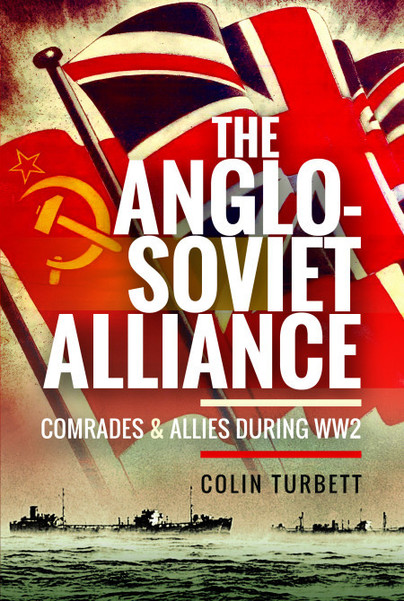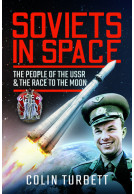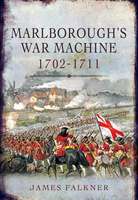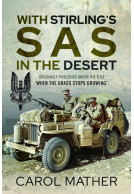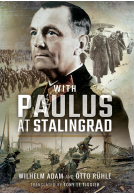The Anglo-Soviet Alliance (ePub)
Comrades and Allies during WW2
Imprint: Pen & Sword Military
File Size: 13.7 MB (.epub)
Pages: 248
Illustrations: 100 black and white illustrations
ISBN: 9781526776594
Published: 24th March 2021
Online Publicity!
Article: Timely reminder of co-operation between Britain and the USSR against a common enemy in WWII as featured by Morning Star
| Other formats available - Buy the Hardback and get the eBook for £1.99! | Price |
|---|---|
| The Anglo-Soviet Alliance Hardback Add to Basket | £25.00 |
From the onset of the Bolshevik Revolution in Russia in 1917 until the German invasion of the Soviet Union in 1941, Britain enjoyed an ambiguous relationship with the USSR and its people. All inter-war governments were concerned about the communist ideals of the new state and the threat they presented to British interests at home and abroad, and this was inevitably reflected amongst the general population. However there was a well-established British Communist Party whose fortunes were tied to the Soviet Union’s successes and failures.
The wartime alliance offered the Communists an opportunity to extend their influence and win electoral support. Or did it? There were influences at work stemming from both sides that sought to put the importance of allied victory above competing ideology, with agreement over the need for a strong and unconditional anti-Fascist alliance. Compromises were made and relationships formed that would have seemed strange indeed to the pre-war observer. There were, however, tensions throughout the period of the war. By mid-1945, the alliance was threatened by differences that reflected original ideologies that had been glossed over for the duration of the conflict: these led to a Cold War for the next 45 years.
This book, using both contemporary sources as well as post-war analyses, examines these matters alongside images that take us back to the period and help us understand its intricacies. It will start with a look at Britain’s opposition to the Bolshevik Revolution and the consolidation of the Soviet State under Lenin and then Stalin. The main body of the book goes on to give detail of the Wartime Alliance and the various forms through which it was expressed – from Government led Lend-Lease of equipment, to voluntary 'Aid for Russia. t ends with the War’s aftermath and the division of the world between the influences of capitalism on the one hand, and the “really existing socialism” of the Soviet Union and its satellites on the other. Tensions and expectations resulted, amongst other great social events, in the launch of the Welfare State, the demise of the British Empire, the nuclear arms race and, ultimately, the end of the Soviet Union in 1991.
"A worthy subject."
Diplomacy & Statecraft Journal
"The book presents a successful and balanced examination of the relationships influencing the British and the Soviets during the Second World War...Turbett’s attention to context, too often dismissed as obvious in high-minded abstract discussions, is crucial to understanding the complexities of competition amidst cooperation."
Campaigning: The Journal of the Joint Forces Staff College December 2021
"Turbett presents a successful and balanced examination of the relationships influencing the British and the Soviets during the Second World War."
The Naval Historical Foundation
Read the review here
I highly recommend this book to those wishing to better understand how the British and Soviets worked together during WW2 despite their ideological differences. That the British workers took so quickly to their Soviet comrades worried many within the British establishment and it was only as the Allies seemed set for victory that the suspicion and fear that would come to dominate the coming years appeared. This book helps dispel the Cold War fog which has distorted this reality for decades.
Scottish Left Review
Read the full review here
"A very interesting read".
SCRSS - Society for Co-operation in Russian and Soviet Studies - Autumn 2021
Article 'Restituting history’s missing pages' featured on:
Morning Star Online
Article: 'Timely reminder of co-operation between Britain and the USSR against a common enemy in WWII' as featured by
Morning Star Online
Featured in The Arran Banner
The Arran Banner
This book written by Colin Turbett is most certainly a fine book to read, that shows his clear, in-depth knowledge and interest in the subject he must be commended for. I enjoyed how he has entwined this book with the story of the ordinary people with the more formal political part of the story. The book is very well supported by a number of photographs and pictures. This has certainly been an excellent book to read, one I would certainly recommend to everyone, but especially students looking to learn more about this part of history. This gets a 5-star rating from me.
UK Historian
Read the full review here
I have read several histories of the Second World War. Colin Turbett’s new book made me realise that none of them give due recognition to the importance of the Anglo-Soviet relationship. Most of these histories not only neglect this wartime alliance, but also the crucial role the Soviet Union had in the defeat of Nazism. This book examines British support for the Soviet Union 1941-1945, from at highest level (Churchill and Stalin), through to the Red Cross Campaign for Aid to Russia (sponsored by Clementine Churchill, the PM’s wife), and to very local fund-raising activities, often led by members of the Communist Party of Great Britain. The experiences of the Arctic Convoys tells a story that deserves to sit alongside those the Blitz, the Battle of Britain, Dunkirk etc in our collective memory of the Second World War.
Amazon Customer, John Boaler
5 stars
Read the full review here
The author of this book, a life-long socialist and trade union activist, would appear to be uniquely qualified to unpick the characteristics of the Anglo-Soviet alliance. The relationship between Stalin and Churchill has been written about extensively but the impacts on ordinary citizens and service personnel obliged to live and work together is, in many ways, just as fascinating. The text is supplemented by a plethora of images drawn from the authors private collection which provide a visceral representation of how the alliance was communicated and perceived at the time. This book brings a unique perspective on an international state level 'marriage of convenience', the scale and complexity of which is often overlooked. It is a book that that will challenge your pre-conceptions. It will inform your thinking and it will entertain you. Recommended.
Phil Curme
Read the full review here
The information is presented clearly, as I mentioned before, I liked the use of primary sources and there are lots of pictures, dotted throughout the book, which is great. I felt I learned from the book and this is why I recommend it.
Coffee and Books
Read the full review here
This is an excellent study of an aspect of WW2 that hasn't received enough attention from historians, covering both the home front and operations abroad. Well worth a read.
Balkan Wargamer
Read the full review here
Rating: 5 out of 5 stars
NetGalley, Stephen Kelley
Colin Turbett did a excellent job with this book, his insight and items from his personal collection regarding the CPGB and its relationship to wartime politics, was very interesting and paints of vivid picture of this period both internationally and domestically in the UK. I was most taken aback by the general feeling that Russia was this unsung hero of the war (until deemed otherwise), being the focal point of fundraising drives, and pro-USSR charity events. This was very thought provoking, and runs counter to my notions of where Russia sat within the media at the time. Perhaps people were willing to look the other way to a maniacal monster like Stalin, much like how we do now with many of our “allies”, but the whole thing comes across as if the UK somewhat used the USSR and perhaps they used the UK.
Another solid offering from Pen and Sword, highly recommended.
About Colin Turbett
Colin Turbett was a career social worker in the West of Scotland for many years, and continues to write and consult in that area. His long-held interest in socialist politics and social history combined when he started to write about the history of the USSR from the aspect of the lives of ordinary citizens. This started with Motorcycles and Motorcycling in the USSR since 1939 in 2019, then, with Pen & Sword, Red Star at War - Victory at All Costs (2020), The Anglo-Soviet Alliance – Comrades and Allies During WW2 (2021), and Soviets in Space – The People of the USSR and the Race to the Moon (2021).







